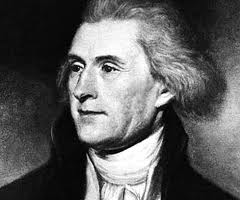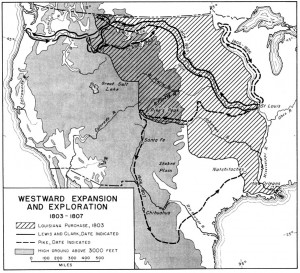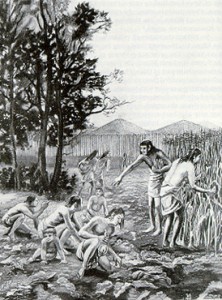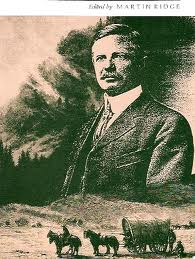From the time of their own arrival, most white settlers to America considered Native Americans savages, or at best, uncivilized. Thomas Jefferson wrote about “civilizing” Indians within a peculiar context–that of helping Americans extend their territory. Jefferson saw that Americans would need more land as the new country’s population grew. The best solution for this coming difficulty, he felt, would be for native peoples to give up their traditional practice of hunting across vast tracts of land in order to free up these spaces for whites.
In a letter to Congress in 1803, Jefferson suggested that Indians take up farming. He wanted to encourage native peoples to “apply to the raising of stock, to agriculture and domestic manufacture, and thereby prove to themselves that less land & labor will maintain them in this, better than in their former mode of living. The extensive forests necessary in the hunting life will then become useless.”
Jefferson hoped that Indians would then see an advantage in exchanging all this useless land for supplies and whatever else would help them to improve their farms and increase their “domestic comforts.” Ultimately, he hoped that his scenario would prepare Indians “to participate in the benefits of our government,” adding that “I trust and believe we are acting for their greatest good.”
______________________________________________________________________________________



